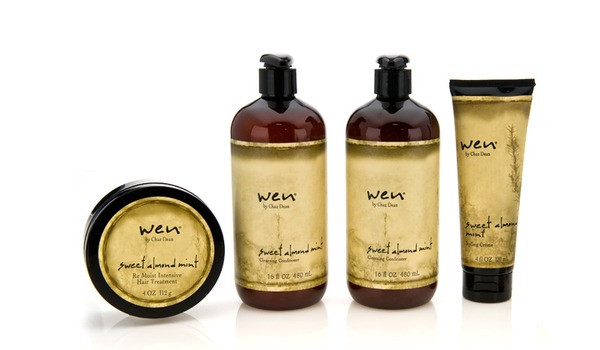
Following a slew of consumer complaints, the U.S. Food and Drug Administration has issued a safety alert (which is rare for beauty products) regarding a line of cleansing hair conditioners by Wen — products that are already the target of an ongoing class-action lawsuit from 2014 over hair-loss claims.
The low-lather conditioners from celebrity stylist Chaz Dean, which come in pomegranate, lavender, and sweet almond mint scents, prompted 127 FDA reports of adverse effects — including hair loss and breakage, balding, itching, and rashes. That represents the most reports ever associated with any hair product, noted the alert — not to mention the more than 21,000 complaints made directly to Chaz Dean, Inc. and product marketer/manufacturer Guthy Renker, which the FDA learned of during inspections of company facilities and will continue to investigate.

A spokesperson for Chaz Dean Inc. provided the following statement to Yahoo Beauty: “The Wen by Chaz Dean family cares deeply about everyone’s hair health. We encourage people who inquire about any hair issues to seek qualified medical assistance because it is a complex topic. WEN by Chaz Dean is safe, and millions of bottles have been sold over the last 16 years. We have consistently cooperated with the FDA and will continue to do so. We love our brand and our customers. Through this experience, we have learned that there is an immediate need for more education about hair health and common hair concerns in the industry, unrelated to Wen. There is no evidence that WEN products cause hair loss and the ingredients and formulations meet or exceed safety and quality standards set by the cosmetics industry. We stand behind them.”
The cause of the reported negative effects is not yet known, the alert notes, but the FDA has called on the company to “provide any data that might help us to better understand the reports of hair loss associated with the use of WEN by Chaz Dean Cleansing Conditioner products.”
The conditioners’ ingredients — which include aloe vera, chamomile extract, sweet almond oil, and soy protein — are relatively benign, with just a few exceptions, including the commonly used preservatives methylisothiazolinone and methylchloroisothiazolinone, which have been linked to skin, eye, and lung irritation, according to the Environmental Working Group’s Skin Deep ingredients database.
So, how did those ingredients — not to mention thousands of others that have been linked to cancer and hormone disruption — get into products that we use on our bodies? Easy, as there is barely any regulation of the $60-billion-a-year makeup and skin products industry. The only tool in place, in fact, is the Federal Food, Drug, and Cosmetic Act, which is extremely weak and was last updated in 1938. A bill has been introduced to update the act, but in the meantime, the U.S. bans only 11 cosmetics ingredients — including the poisons mercury and chloroform — while Europe bans more than 1,300.
What should Wen product users do in the meantime if they experience troubling reactions? First, make sure it’s not just the power of suggestion. “Often, there’s a suggestive herd effect,” Anthony Rossi, a dermatologist who serves as a consultant to Chaz Dean’s PR firm, tells NPR. “If somebody says, ‘I’m using something and it itches my scalp,’ the person next to him will say, ‘You know what? Me too.‘”
But then, if you’re sure, you should do the obvious, the FDA suggests: Stop using the product, check in with your dermatologist, and report it, adding to the mounting number of complaints. Then try another conditioner

Leave a Reply